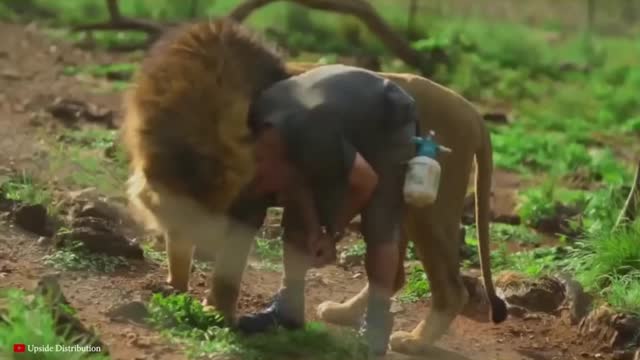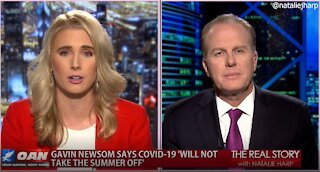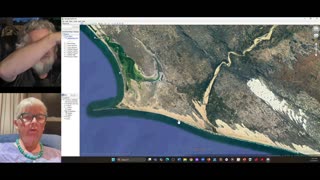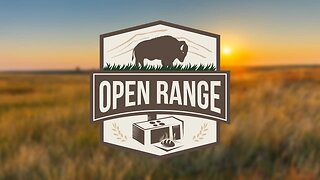Premium Only Content

Kevin Richardson's incredible story of friendship with a lion
Richardson worked in a 650-acre Lion Park in Broederstroom , a town 35 miles north of his hometown of Johannesburg, South Africa. Although he specialized primarily in lions, he also interacted with hyenas and black panthers . [7] [8] The park, which was created with the help of Rodney Fuhr, [4] is 800 hectares (2,000 acres) and was built for the set of the 2010 film White Lion . [8] Richardson cares for thirty-nine lions at this facility. [9] In 2011, the facility was privately owned, but there were plans to open it to the public. [10]The sanctuary's website said in 2020 that it was open for group tours and had a volunteer program. [11]
In 2015, Kevin Richardson Wildlife Sanctuary was relocated to Welgedacht Private Game Reserve near Pretoria. [11]
Lion Care
Kevin Richardson with lions
He slept next to, fed and lived with lions. He has also worked with cheetahs , leopards and hyenas. He prefers lions to any other large cat. [12] His relationship with animals, however, was not instantaneous. He has known all the lions he has worked with since they were cubs. [5] He still maintains his bond with Tau and Napoleon, the lion brothers who were his introduction to the big cats. [4]
Despite his previous involvement in cuddling lion cubs, Richardson rejects the traditional notion that lions should be dominated and dominated, preferring to develop a relationship over time based on love and respect. "A lion is not a possession; it is a sentient being, so you must pay attention and develop your bond as in any relationship." [13]
Hazards
Richardson has been scratched, punctured, and bitten, but he was not deterred by these dangers. In an interview, he mentions, "Obviously, you realize the danger of working with animals of that caliber, I weighed the pros and cons, and the pros outweigh the cons" He warns about following in his footsteps, though. All the photos of his adventures do not portray his years of experience and bonding. "People like to see things out of context. They don't know the relationship I have with this lion." As a rule, Richardson interacts only with lions he has been with since birth. [5]
Richardson also differentiates his work from that of zoologists interacting with completely wild animals they have not raised, or trainers whose animals are forced to perform on stage day after day. [14]
Controversy
Richardson worked as a lion handler for the lion park that appeared in a 2014 segment of the CBS show 60 Minutes , which revealed that Lion Park in Lanseria raised lions to ensure a year-round supply of cubs. When the lions reached maturity, they were sent to canned hunting operations because they were too dangerous to be around tourists. [15]The Lion Park has been criticized for allowing lion cuddling [16] and for supplying lions to the canned lion industry. [15]He has also been criticized by many in the conservation community, members of whom claim that experiences that expressly bring people and lions together on "walks" are risky because of the unpredictable nature of wild animals. Richardson's role as a conservationist was also questioned with experts stating that more care was needed on private reserves to ensure that they reflected what was developed in the national parks. [17] Conservationists Luke TB Hunter, Paula White, Philipp Henschel and Laurence Frank, in a 2012 article entitled "Walking with lions: why there is no role for captive-origin lions Panthera leona species restoration ", concluded that parks in Africa with plans to reintroduce lions to the wild, including Richardson's, had not yet done so in 2013 and found little conservation value to justify using captive lions for reintroduction. [18]
Feb 2018 fatal attack
On February 27, a young girl was attacked to death in Dinokeng Game Reserve by a lioness in her care. Richardson lost track of the lioness when she chased an impala for about 2 kilometers (1.2 mi), after which the lioness attacked the daytime visitor to the reserve. [19] [20] Wildlife biologist Luke Dollar responded to the killing in a National Geographic article, stating that "behaviors and programs that circumvent the reality of our place in the food chain seem to be an accident waiting to happen." [17]
-
 5:32
5:32
One America News Network
4 years agoThe Real Story - OANN Left Coast Lockdowns with Kevin Faulconer
6591 -
 49:25
49:25
Chapel in the Hills
4 years agoFriendship with God
36 -
 1:03
1:03
Patriot video news created by Liberty Kid
4 years ago $0.02 earnedInterview with Kevin Jenkins
570 -
 29:13
29:13
Clownfish TV
23 hours agoGen Z are Becoming the Boomers?! | Clownfish TV
9.25K35 -
 1:48:31
1:48:31
Squaring The Circle, A Randall Carlson Podcast
18 hours agoMEGA Tsunamis and the formation of our World ft. Dr. Dallas Abbot
22.8K5 -
 29:26
29:26
Advanced Level Diagnostics
2 days ago2019 Chevy Express - No Crank, Relay Clicking! Diag & Fix!
3 -
 30:56
30:56
5AMPodcast
22 hours agoCitizen Journalism 🎙️Replacing Traditional Media | Sam Anthony on 5 AM Podcast
171 -
 6:53
6:53
Rena Malik, M.D.
1 day ago $1.66 earnedWhy Antidepressants Wreak Havoc on Your Sex Life?! | Urologist Explains How to Boost your Libido
18.9K4 -
 1:00:00
1:00:00
BEK TV
2 days agoMIKE MOTSCHENBACHER ON NORTH DAKOTA POLITICS, TEA PARTY ROOTS, AND THE 2026 ELECTION
14.7K -
 15:31
15:31
Breaking Points
1 day agoIs Trump Planning VENEZUELA Regime Change?
39.8K28